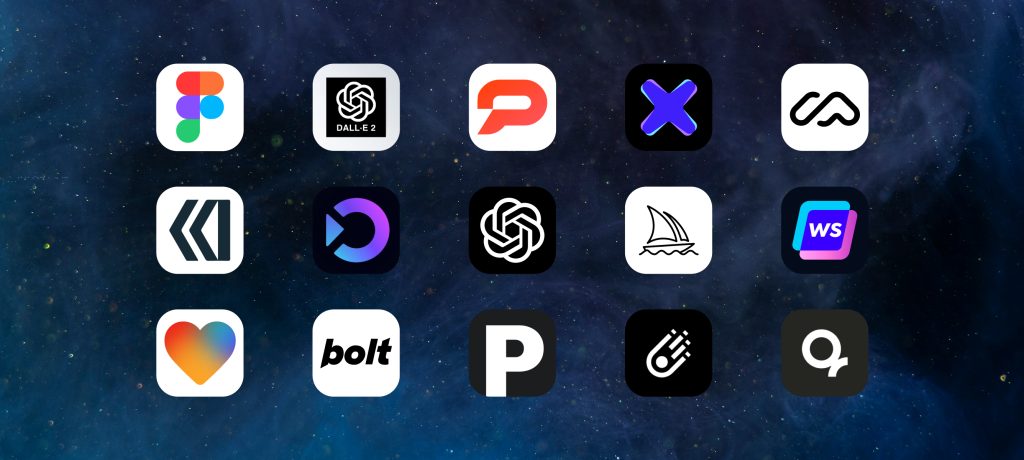If you are operating in SEO, or any digital space for that matter, chances are—you are losing sleep over the explosive proliferation of AI tools that are taking the world by storm right now.
Unless—you are from the future and reading this article with a potent sense of gloat.
In the interest of living in the now and maintaining a half-glass-full mindset, we assume you are reading this blog post in the present and the robots haven’t taken over our planet yet.
There must be so many unanswered questions swirling around in your head right now—and rightly so.
Do we need to unlearn all we’ve come to know about SEO and go back to square one? Should we start optimizing for AI generative search?
How did we get here?
Artificial intelligence (AI) is the simulation of human intelligence that enables machines to enhance and improve upon the capabilities of the human mind.
Related Read: Ok, Google: How to Get my MENA Startup Ready for Voice Search?
Over the past few years, AI has been a welcome addition to our digital world—another supplemental tool in our modern-day convenience arsenal.
From smart assistants, like Alexa and Siri, AI is becoming an integral part of everyday life. And to build on that momentum, tech innovators have stepped up their AI game with the advent of ChatGPT (Chat Generative Pre-trained Transformer), a game-changer of all artificial intelligence applications. It became an overnight sensation that amassed over 100 million users within the first two months of its release.
ChatGPT is a chatbot—on steroids—built to mimic human-like conversation based on different commands and prompts in a Q&A format, employing Natural Language Processing (NLP) and Text Generation capabilities to process prompts and accomplish complex tasks.
Like a human would respond to a follow-up question or hold a full-blown dialogue, ChatGPT has been trained by a machine learning technique, known as Reinforcement Learning from Human Feedback (RLHF), to challenge inaccurate inputs, reject inappropriate prompts, and own up to slip-ups.
What does that mean for SEO? With all its shiny bells and whistles, ChatGPT can make or break the day-to-day workflow of SEO.
Let’s explore how ChatGPT can be leveraged to achieve maximum SEO success.
AI and Content Marketing
Right out of the box, ChatGPT can construct content around the topic of choice if prompted with sufficient instruction points and clear commands.
For SEO content marketers, ChatGPT is a goldmine for topic ideation. It can curate article introductions, and text summarization and can proofread as well as paraphrase content.
You must be thinking what everyone is thinking: Any Tom and Dick and Harry can write content and rank in search with the help of ChatGPT, or the likes of other AI-powered content generators, such as Quill Bot AI and Jasper.
Well, not necessarily.
AI content generators can surely help you fill up a blank page, but that doesn’t mean the AI-generated content can engage your audience or enchant its fellow Google bots to rank in SERPs.
Google will not take pity on your website’s page ranking if the content failed to provide value to its intended users.
On the flip side, content writing is intended to not only educate users but also to entertain and engage them to take a certain action. Dry, insipid AI-generated content—that lacks flair and creativity—may put users off, potentially increasing the bounce rate.
The pros and cons of utilizing ChatGPT for Content Marketing
The pros
- Great for brainstorming and topic ideation
- Ideal for technical content writing and instruction user manual
Cons
- AI-generated content falls short in the creative writing department
- Constructing detailed and razor-specific prompts to get the right output can be a tedious and time-consuming task
- Results can include inaccuracies and require constant fact-checking
- Information provided by ChatGPT can be outdated as the data hasn’t been updated since 2021
How to spot AI-written content
Who would better spot AI-generated content than another AI tool?
When in doubt, run any content submitted by your editorial team through AI Text Classifer, an open ChatGPT tool, designed to detect machine-generated content.
There are a few limitations to this tool, though, as stated on the tool’s page. It requires the content to be at least 1,000 characters in length, and can’t give a definitive answer to whether AI-written or human-written. The result could be anything from very unlikely, unlikely, unclear, possibly to likely.
Helpful Content Update
Google has rolled out Helpful Content Update (System) as part of an ongoing endeavor to reduce low-quality content created primarily for search engines. The Helpful Content Update, initially released in August of 2022, is now armed with more additional signals to enable Google to identify content constructed with the sole purpose of ranking rather than providing value to users. Google places great emphasis on people-first content that feels authentic, useful, and of value to the user.
While the jury is still out on whether AI-generated content is a white-hat or black-hat SEO practice, Google underscores the paramount importance of publishing valuable content.
AIPRM extension
AIPRM, powered by ChatGPT, is a Google Chrome extension add-on that hosts a list of curated prompt templates for SEO.
With one click, you can access a mixed bag of optimization capabilities—equipped to assist you in keyword research, content generation, keyword intent mapping, content clustering, link building, and FAQs.
It is a handy Google extension to get the ball rolling, helping you curate initial content ideas and discovery keywords—all mapped by intent and keyword clusters.
That being said, when presented with the challenge of devising a marketing strategy for a B2B product, AIPRM misses the mark of understanding the targeted geographic markets and the subtle nuances of niche verticals and their intended audience.
Exercise judicious caution when conducting competitor and keyword gap analysis utilizing AIRPM for B2B products due to the tool’s output inaccuracies and poor understanding of niche domains.
Related Read: Keyword Research for a Winning SEO Strategy
The pros and cons of utilizing AIPRM for SEO
Pros
- Supports multiple languages
- Offers rich topics for content ideation
Cons
- Built-in unsolicited ads or upsell
- Barely scratches the surface when it comes to strategizing for niche domains
Google’s Bard
If you think the 24-year-old search engine is going to sit idly by and let ChatGPT steal its spotlight, then you don’t know your search buddy! Google wants a piece of the AI pie and is sparing no expense at building a tool of its own.
Say hello to Bard, Google’s answer to AI ChatGPT, and the new contender in the AI race.
Bard is an experimental AI service—designed to offer a more intuitive way of navigating and consuming information on the web.
Google’s newborn AI baby is powered by LaMDA, a new language model for AI dialogue applications.
Alas, Bard has got off to a rough start in a promotional video after Google announced its foray into the AI rally.
Bard has made a factual error when queried: “What new discoveries from the James Web Space Telescope can I tell my 9-year-old about?”
ChatGPT & Microsoft
The OpenAI’s GPT-4 model will be integrated into Bing, providing a ChatGPT-like search experience.
Will we set it as our default search engine and Bing it from now on?
Other AI systems to watch
Future AI tools
Future AI tools is a godsend resource for those who are keeping tabs on up-and-coming AI systems. It compiles all the best AI tools out there, organized under a wide range of categories, from copywriting, and finance to video editing and translation.
ChatGPT Writer – Write mail, Messages with AI
Stumped for a quick reply to a strongly-worded email on a busy workday? ChatGPT Writer, powered by ChatGPT AI, is a free Chrome extension developed to compose entire emails and messages. ChatGPT Writer is compatible with all sites and supports all languages. It will finish your sentence for you!
YouTube Summary with ChatGPT
Looking for a summary or a transcript of YouTube videos? YouTube Summary with ChatGPT allows you to quickly access a summary or transcript of YouTube videos by simply clicking the buttons on the video thumbnail as you browse other video content on YouTube. Get the gist of any video content without having to sit through and watch the entire video.
This is by no means an exhaustive list of AI-powered SEO tools—more AI tools are cropping up at a steady clip geared toward every industry vertical under the sun.
Here’s why there won’t be an AI version of you at the workplace
When the frenzied hype wears off, many of us will realize that ChatGPT is another tool capable of complementing your Standard Operating Procedures, but not competing with you.
ChatGPT inadequacies and drawbacks
- Lacks creativity and innovation. AI falls short of generating creative concepts and out-of-the-box strategies for content building. It can only work with the data it receives—and is incapable of conceiving fresh ways, styles, or innovative patterns to perform work tasks.
- Outdated and inaccurate data. ChatGPT is unable to generate information later than 2021. Although ChatGPT writes logical, long-form content at a moment’s notice, the answers are sometimes incorrect or nonsensical.
- Bad with numbers and figures. Looks like ChatGPT skipped the accounting class in college. It failed to identify the SAM, SOM, and TAM of the total market size for a B2B startup.
- Requires detailed prompts. ChatGPT is akin to a bright kid from the future. He might seem to have answers, but the trick is to get ChatGPT to infer the question being queried. For the best results, you need to provide ultra-specific, detailed, and complex input. In other words: enunciate.
Final thoughts
Whether you view AI as a friend, foe, or a fleeting fad, one thing is for sure: it’s the future. Having an open-ended dialogue with a human-like chatbot is a breath of fresh air.
But make no mistake, ChatGPT can blur facts with fiction. As AI systems continue to evolve and improve, one must exercise caution and fact-check data generated by AI with a fine-tooth comb.
AI can help startups increase revenue and improve user experience by automating tasks, empowering them to build an agile Standard Operating Procedure, while freeing employees to take on critical work.
As long as your startup can ride the winds of change and take the reins of AI, without blindly following its lead, you’re setting yourself up for future success.





